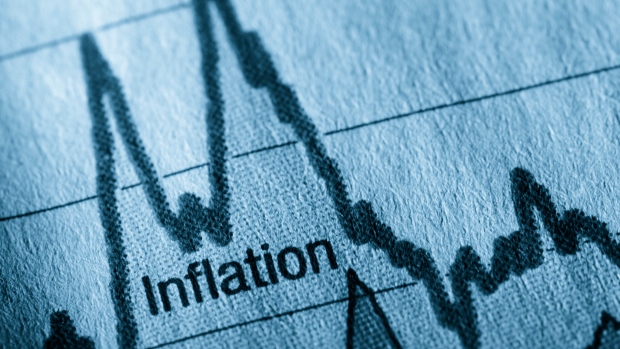Dec 1, 2021
How responsible investing can help you beat inflation
Presented by:


Inflation is everywhere these days. In October, Canada’s inflation rate topped 4.7%, the highest year-over-year increase in 18 years, according to Statistics Canada. Everything from food to gasoline to housing costs has climbed, and with backups at ports and demand for energy increasing as economies open up again, many think inflation will be here for a while.
One reason why prices have gone up is because energy prices have risen significantly over the last 12 months. West Texas Intermediate crude is 47% higher today than it was a year ago, while natural gas prices have risen by 87%, according to Bloomberg. These are key parts of the supply chain—when oil prices rise, transportation costs increase, and when natural gas costs climb, it gets more expensive to turn the office lights on.
Deborah Debas, Responsible Investment Specialist at Desjardins, isn’t as worried about long-term inflation as others. “Whether inflation is transitory or not, investors should maintain a long-term focus,” she adds. “Our bet is that companies who successfully implement sustainability practices are well positioned to navigate an inflation period and remain relevant in a changing world.”
Sticking with RI funds
Now’s the time for investors to stick with RI strategies. Investing in these funds and in sustainability-focused companies can help people maintain their purchasing power.
“There’s this myth that if you invest sustainably you’re leaving some returns on the table,” notes Debas. “Being invested in the market is potentially the best way to beat inflation—and if you invest with a focus on environmental, social and governance (ESG) factors, you’re investing in strategies that may potentially help you outperform.”
While some companies will struggle with higher inflation, businesses with robust ESG practices have an advantage. “These are quality companies,” she explains. “It means they have strong leadership and long-term thinking. Their leaders are aware of environmental risks and opportunities that they can face.”
Businesses that have integrated sustainability solutions into their practices are also well positioned to increase the value of their brand, as more consumers want to shop and work with ESG-focused operations. One PwC survey found that 80% of consumers are more likely to buy from a company that supports environmental issues, for instance. These companies also tend to have better relationships with their employees and the companies in their supply chain. That can help them improve efficiencies, benefit from pricing power and be better able to maintain their profit margins.
Moreover, Debas says that if inflation does increase there’s also a good chance that interest rates will rise. That means higher costs of capital more broadly. Companies with better ESG practices, however, tend to have a lower cost of capital and can access loans at lower rates, according to MSCI. “We know that capital markets reward good ESG performance,” she says. “These companies will have access to capital at lower costs, which means increased margins.”
Opportunities for diversification
One challenge for ESG funds is that advisors still have the misconception that they’re narrowly focused. Of course, investors need to be invested in many sectors of the economy so they can diversify their risk. “A reason why ESG investing is overlooked is people don’t feel like they’re invested everywhere,” she explains.
That’s a myth. In fact, while Desjardins’s own ESG funds do have some hard exclusions—they don’t invest in tobacco, fossil fuels and weapons companies, for instance—their RI products do hold companies across many sectors and geographies. For instance, its SocieTerra Growth Portfolio has holdings in Canada, the US and elsewhere, and is diversified across technology stocks, financial services, industrials, health care, green bonds and so on.
Some ESG funds also offer solid bets on some long-term trends for thematic impact investing. These funds hold innovative companies that are solving key ESG issues with energy efficiency or sustainable agriculture.
When it comes down to it, businesses that have strong fundamentals, including increasing earnings growth, low debt relative to their peers and a good management team, among other positive metrics, could see above-inflation potential returns. “If you’re broadening your horizon by taking ESG into account, you’re enhancing your risk management,” says Debas.
Many of these companies will have some sort of sustainability focus as more now equate ESG with good business practices, and good businesses potentially tend to outperform inflation. “The companies that can adapt and embrace ESG,” she notes, “will emerge positively.”
Desjardins Funds are not guaranteed, their value fluctuates frequently, and their past performance is not indicative of their future returns. Commissions, trailing commissions, management fees and expenses all may be associated with mutual fund investments. Please read the prospectus before investing. Desjardins Funds are offered by registered dealers.